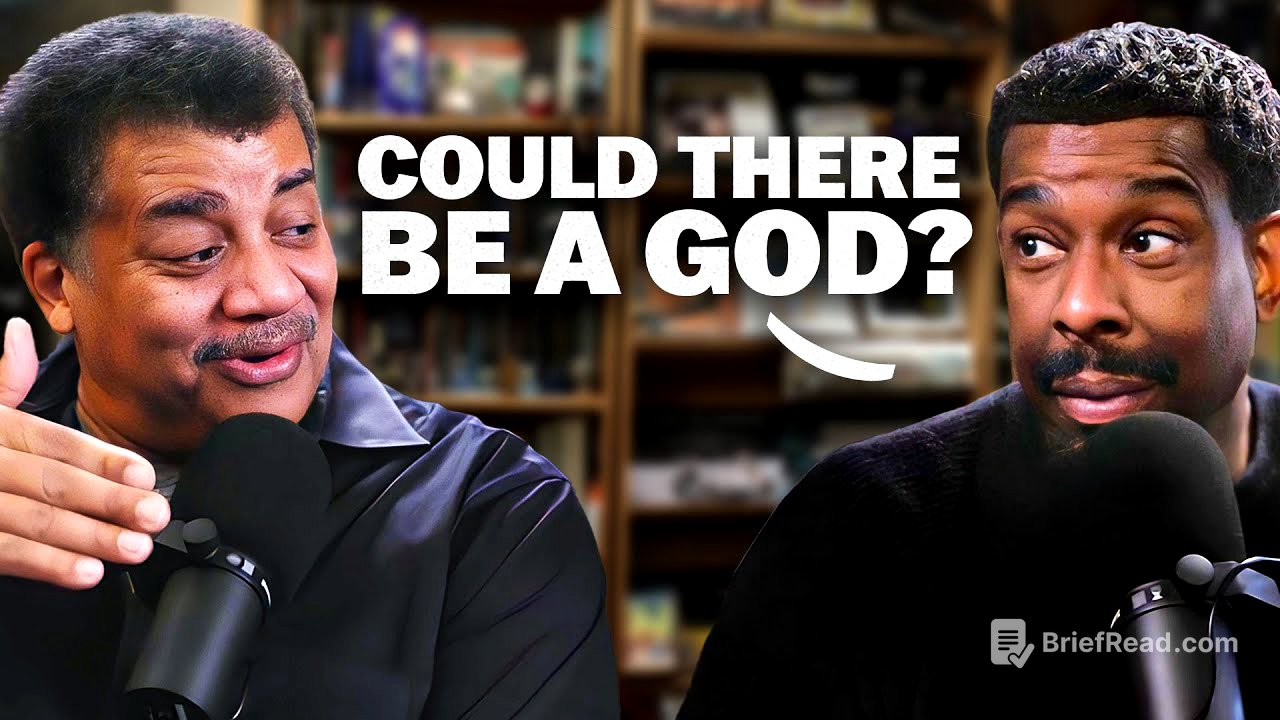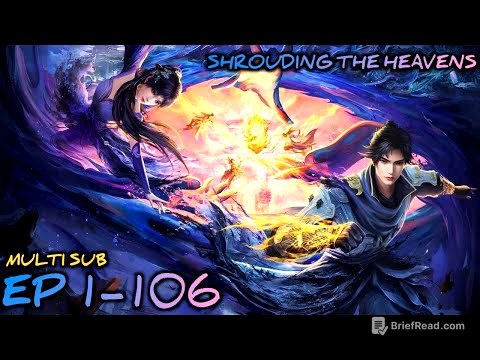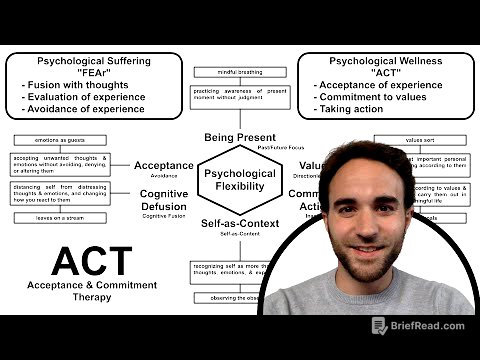TLDR;
Neil deGrasse Tyson explores the concept of being wrong in science, highlighting that it's an integral part of the scientific process. He discusses different levels of being wrong, from everyday mistakes to scientific errors. He emphasizes that scientists are often wrong on the frontier of knowledge, but that these errors can lead to important discoveries. Tyson also examines the case of Claudius Ptolemy, who was wrong about the geocentric model of the universe but whose work paved the way for future discoveries. He concludes by discussing the importance of being open to new evidence and challenging one's own beliefs, even if it means admitting to being wrong.
- Scientists are often wrong on the frontier of knowledge, but these errors can lead to important discoveries.
- Being wrong can be a catalyst for scientific progress.
- It's important to be open to new evidence and challenge one's own beliefs, even if it means admitting to being wrong.
Introduction: Has Neil Ever Been Wrong? [0:00]
Neil deGrasse Tyson begins by discussing a question he was asked during a public talk: "When was the last time you were wrong?" He explains that there are different levels of being wrong, from simple mistakes to more significant scientific errors. He acknowledges that everyone makes mistakes, but he's unsure what the questioner meant by "wrong" in the context of science.
To Be Scientifically Wrong [1:23]
Tyson delves into the concept of being scientifically wrong, explaining that scientists are often wrong on the frontier of knowledge because there isn't enough evidence to support a definitive conclusion. He uses the example of COVID-19, where initial information about the virus was later found to be inaccurate due to a lack of understanding. He emphasizes that scientists are constantly learning and refining their understanding of the world.
To Be Wrong and Right at the Same Time [6:26]
Tyson explores the idea of being both wrong and right at the same time, using the example of Claudius Ptolemy, a brilliant mathematician who codified the geocentric model of the universe. While Ptolemy's model was ultimately proven incorrect, it was a valuable tool for understanding the movement of planets and making predictions. He highlights Ptolemy's humility in acknowledging the limitations of his model and his willingness to embrace the possibility of being wrong.
Retracting the First Exoplanet [12:47]
Tyson discusses the discovery and subsequent retraction of the first exoplanet, a planet orbiting a star other than our Sun. The initial discovery was based on observations of a pulsar, a rapidly rotating neutron star. The researchers initially believed the planet had a 365-day orbit, similar to Earth's, but later realized their error. They had assumed a perfectly circular orbit for Earth, which led to an incorrect interpretation of the data. Tyson emphasizes that this retraction was a testament to the self-correcting nature of science.
Thinking You’re Right Despite Evidence [16:00]
Tyson moves on to discuss the phenomenon of people clinging to beliefs despite evidence to the contrary. He argues that this is not a scientific approach, as science is based on evidence and the willingness to change one's mind when presented with new information. He uses the example of religion, where beliefs are often based on faith rather than evidence.
Einstein’s Blunder [20:43]
Tyson recounts the story of Albert Einstein's "greatest blunder," which involved the cosmological constant. Einstein initially included this term in his theory of general relativity to account for a static universe, but later rejected it when evidence emerged that the universe was expanding. However, decades later, the cosmological constant was revived to explain the accelerating expansion of the universe, demonstrating that even the greatest minds can be wrong.
On Being Wrong [23:00]
Tyson concludes by reiterating the importance of being open to new evidence and challenging one's own beliefs. He emphasizes that being wrong is not a failure, but an opportunity for learning and growth. He encourages viewers to embrace the possibility of being wrong and to be willing to change their minds when presented with compelling evidence.









